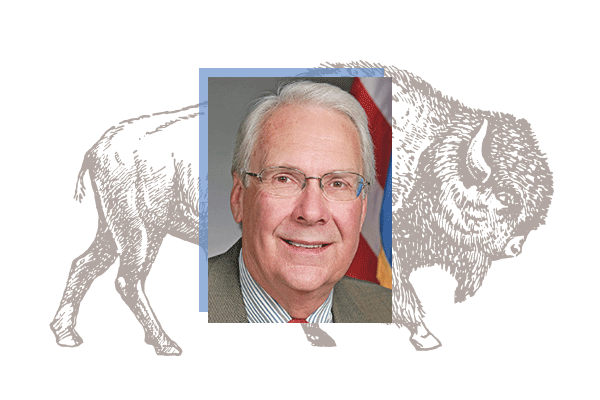OKLAHOMA CITY – A measure endorsed Tuesday by a legislative committee would mandate a recount if a statewide election on a statutory issue or constitutional change were decided by a narrow margin.
House Bill 2564, by Rep. Chad Caldwell, R-Enid, would require a recount if:
• the margin of votes required for approval of a statutory issue or question were within one-half of 1 percent (0.5%) or less of the total number of votes cast;
• the margin of votes required for approval of a constitutional issue or question were within 1 percent or less of the total number of votes cast; or
• if requested by the Governor, the state Attorney General or the Secretary of the State Election Board.
Under existing state law, a recount of an “issue or question election” is not permitted.
State Election Board Secretary Paul Ziriax said he and his staff reviewed HB 2564 and, “My main concern is that there’s not a mechanism in this bill to pay for the cost.”
A recount on State Question 802, Medicaid expansion, would have cost Oklahoma’s counties about $181,000, Ziriax said. Of the 674,591 ballots that were counted in that election last June, the constitutional amendment passed by 6,553 votes (a margin of 0.97%).
A recount on State Question 805, a criminal justice reform proposal that focused on sentence enhancements, would have cost counties almost $330,000, Ziriax said.
That election last November drew more than 1.5 million voters (and was opposed by 61% of them).
HB 2564 received a “do pass” recommendation from the House Committee on Elections and Ethics on a 6-2 vote.
Endorsing the measure were Committee Chairman Jim Olsen, R-Roland; Vice Chairman Max Wolfley, R-Oklahoma City; and Reps. Rande Worthen, R-Lawton; Jim Grego, R-Wilburton; Anthony Moore, R-Clinton; and David Smith, R-Arpelar. The proposal was opposed by Reps. Cyndi Munson, D-Oklahoma City, and Merleyn Bell, D-Norman.
The next step for the bill is scheduling a floor vote by the full House.
In other matters:
The committee unanimously approved House Bill 1752 by Rep. Denise Crosswhite Hader, R-Piedmont, which would impose a time limit for purging the names of deceased persons from voter registration rolls.
State law requires the State Health Department to transmit to the State Election Board a certified list of all deaths that occurred in Oklahoma during the previous month. In turn, the State Election Board is required to notify the appropriate county election boards.
HB 1752 clarifies that the county election board would have 30 days from the date that list is received, to remove the names of deceased individuals from the central registry and voter registration database.
The bill also would make it mandatory for funeral directors to notify the secretary of the county election board when a resident of the county dies.
The names of approximately 22,000 people were purged from voter registration rolls last year, Ziriax said. About 18,000 of those names came from the State Health Department and the rest from funeral directors, he said.
“Maintaining clean voting rolls is critical to a healthy democracy,” Ziriax said.
House Bill 1751 would require a candidate for public office to swear or affirm that he/she resides at the address listed on the Declaration of Candidacy form. If the candidate provided an address other than his/her principal residence, the candidate would be subject to a civil penalty of up to $200.
The declaration form also would be further amended to include, besides the candidate’s legal name, mailing address and date of birth, his/ her party affiliation “and the date the candidate registered as a voter” of that political party, the candidate’s “voter registration identification number” along with the precinct and county where the candidate is a registered voter.
The bill, by Crosswhite Hader, received a “do pass” recommendation on a 7-1 vote by the committee and was referred to the full House.
House Bill 2704 by Rep. Merleyn Bell, D-Norman, would have required state colleges and universities to have at least one full-time staff member available to notarize ballots during designated periods of absentee voting. State law requires notarization of absentee ballots.
Banks have notary publics who can perform this service, and Oklahoma has scores of banks scattered throughout the state, Rep. Worthen noted. “They’re out there and willing to help,” the Lawton Republican said.
The committee rejected the bill on a 2-6 vote.


